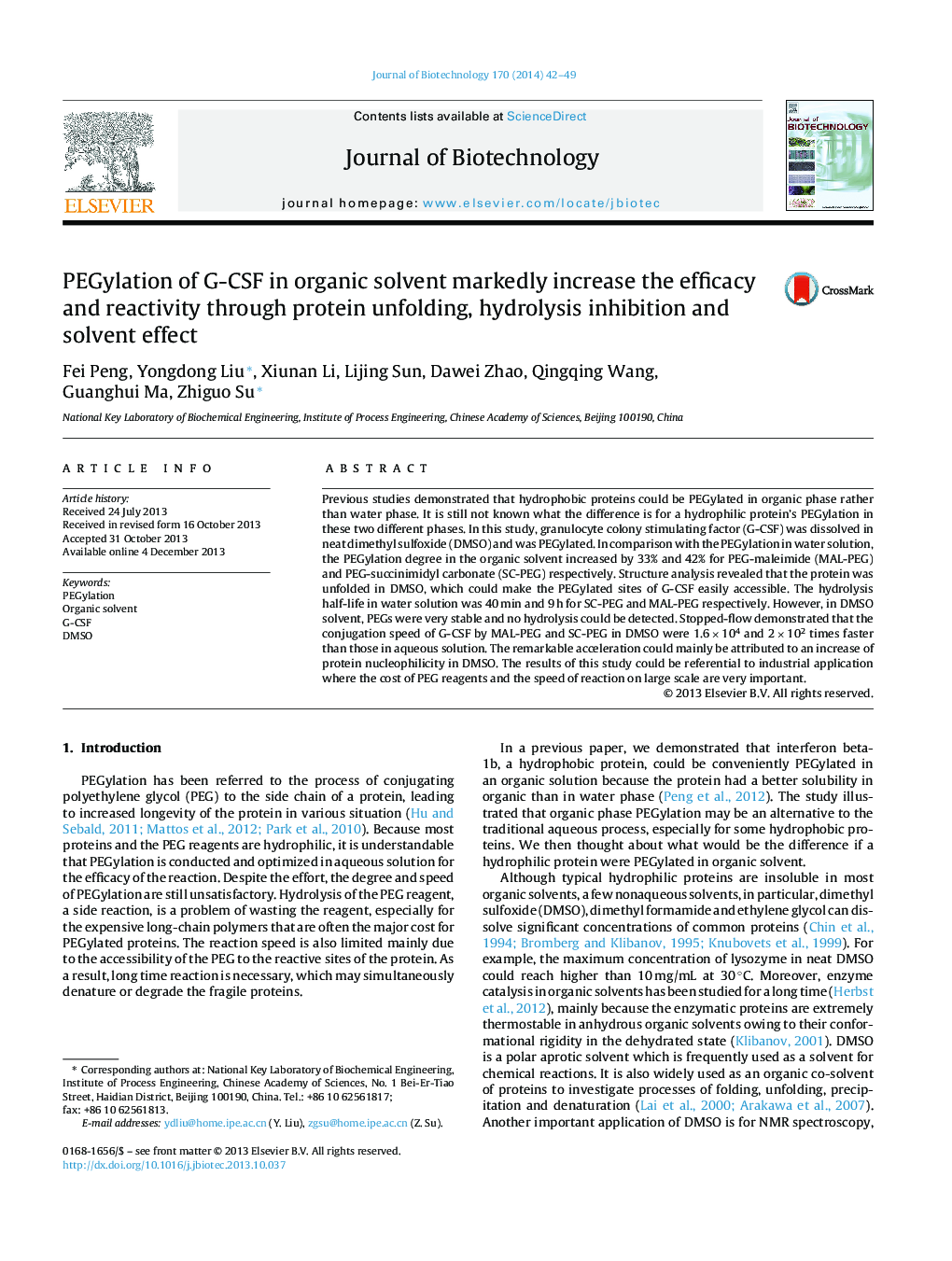| Article ID | Journal | Published Year | Pages | File Type |
|---|---|---|---|---|
| 23263 | Journal of Biotechnology | 2014 | 8 Pages |
Previous studies demonstrated that hydrophobic proteins could be PEGylated in organic phase rather than water phase. It is still not known what the difference is for a hydrophilic protein's PEGylation in these two different phases. In this study, granulocyte colony stimulating factor (G-CSF) was dissolved in neat dimethyl sulfoxide (DMSO) and was PEGylated. In comparison with the PEGylation in water solution, the PEGylation degree in the organic solvent increased by 33% and 42% for PEG-maleimide (MAL-PEG) and PEG-succinimidyl carbonate (SC-PEG) respectively. Structure analysis revealed that the protein was unfolded in DMSO, which could make the PEGylated sites of G-CSF easily accessible. The hydrolysis half-life in water solution was 40 min and 9 h for SC-PEG and MAL-PEG respectively. However, in DMSO solvent, PEGs were very stable and no hydrolysis could be detected. Stopped-flow demonstrated that the conjugation speed of G-CSF by MAL-PEG and SC-PEG in DMSO were 1.6 × 104 and 2 × 102 times faster than those in aqueous solution. The remarkable acceleration could mainly be attributed to an increase of protein nucleophilicity in DMSO. The results of this study could be referential to industrial application where the cost of PEG reagents and the speed of reaction on large scale are very important.
